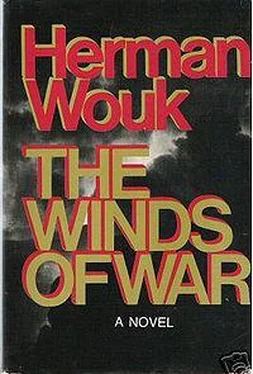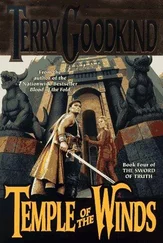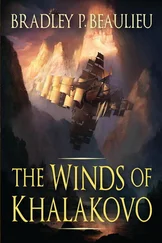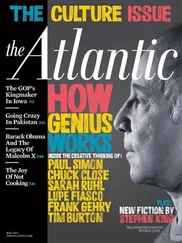Herman Wouk - The Winds of War
Здесь есть возможность читать онлайн «Herman Wouk - The Winds of War» весь текст электронной книги совершенно бесплатно (целиком полную версию без сокращений). В некоторых случаях можно слушать аудио, скачать через торрент в формате fb2 и присутствует краткое содержание. Год выпуска: 1971, Издательство: Collins, Жанр: Историческая проза, на английском языке. Описание произведения, (предисловие) а так же отзывы посетителей доступны на портале библиотеки ЛибКат.
- Название:The Winds of War
- Автор:
- Издательство:Collins
- Жанр:
- Год:1971
- ISBN:нет данных
- Рейтинг книги:4 / 5. Голосов: 1
-
Избранное:Добавить в избранное
- Отзывы:
-
Ваша оценка:
- 80
- 1
- 2
- 3
- 4
- 5
The Winds of War: краткое содержание, описание и аннотация
Предлагаем к чтению аннотацию, описание, краткое содержание или предисловие (зависит от того, что написал сам автор книги «The Winds of War»). Если вы не нашли необходимую информацию о книге — напишите в комментариях, мы постараемся отыскать её.
About the Author
Herman Wouk's acclaimed novels include the Pulitzer-Prize winning
;
;
;
;
;
; and
.
The Winds of War — читать онлайн бесплатно полную книгу (весь текст) целиком
Ниже представлен текст книги, разбитый по страницам. Система сохранения места последней прочитанной страницы, позволяет с удобством читать онлайн бесплатно книгу «The Winds of War», без необходимости каждый раз заново искать на чём Вы остановились. Поставьте закладку, и сможете в любой момент перейти на страницу, на которой закончили чтение.
Интервал:
Закладка:
It is self-evident that Adolf Hitler owed the Japanese nothing. The pact obliged the partners to assist each other only if one was attacked by a third party. To call Pearl Harbor an “attack” by America on Japan was stretching language, even in Oriental rhetoric. Hitler certainly had the right to demand at least that Japan should now as a quid pro quo declare war on the Soviet Union. The news of such a Japanese act would have raised the spirits of our snowbound troops in Russia beyond all measure. It might have changed the whole picture.
But Hitler never mode the demand. He allowed Japan to stay on neutral terms with Russia, while he plunged the German people into war with America. With this one mystifying blowup, the Führer threw away his historic gains and the future of the Reich.
Why?
I myself was on an inspection tour by air of the Moscow front when the Führer journeyed to Berlin to declare war.
When I saw him again at Wolf’s Lair in mid-December, he was very unconcerned and airy-fairy about the United States. In dinner table talk one evening when I was present, he called America a mongrel nation, half Jewified and half Negrified, incapable of making serious war. The United States would have its hands full just with Japan, he crowed, and would probably be defeated. There was no chance that it could intervene in Europe. So he said; but I believed then, and still do, that this was cheerful blather for his subordinates, or narcotic self-deception. Unlike the Japanese leaders, Hitler knew at heart the one crucial military fact about America: that nothing must be done to awaken and unite that confused, quarrelsome, luxury-rotted titan. Pearl Harbor had done it.
This war was at bottom a chess game with men and nations played between two wills and two world views, which had been competing since 1933 — between Adolf Hitler and Franklin D. Roosevelt. Hitler started with a handicap of rook and two pawns, as it were, in industrial plant, population, allies, and natural resources. These odds compelled his flamboyant and desperate style. The man in the wheelchair could afford a slow, cautious game, waiting for his opponent to defeat himself by unsound gambles.
Hitler appeared to outplay Roosevelt brilliantly, year after year. His bloodless victories before 1939, his swift conquest of Poland and western Europe, and his breathtaking seizure of European Russia in 1941, turned the game heavily in his favor. Adolf Hitler was within sight of checkmate, when Japan attacked Pearl Harbor. That was the break Roosevelt had been waiting for.
I am well aware of the conventional explanation that Hitler felt we had a de facto war going with America anyway in the Atlantic, and wanted to beat Roosevelt to the punch with his declaration, for reasons of prestige. It is even contended that declaring war on America was a clever move to boost our morale, by taking the public mind off our halts and setbacks on the Eastern Front. But these conjectures ignore the fatal failure to demand Japanese action against Russia, and also the text of the actual war declaration. This unstatesmanlike document is one long scream of despair and rage, all directed against Roosevelt. My judgment will always be that Hitler saw the game unexpectedly go glimmering, and in anger kicked over the board.
Finis Germaniae
Other writers follow Churchill and place the turning point of the war a year later, in the triple cluster of events — Stalingrad, El Alamein, and the North African landings — when the turn become visible in the field. But the true turn was Pearl Harbor.
We scored our greatest successes, without question, and expanded our short-lived German empire to its amazing farthest reach only in 1942, long after Pearl Harbor and the halt at Moscow. Our U-boats almost mastered the Atlantic, sending whole fleets of British and American ships to the bottom. Our armies marched to the Caucasus Mountains, the Caspian Sea, and the Nile. Our energetic ally, Japan, captured her East Asian empire in swift blazing victories.
But one memory haunted me during all those victories: the airplane trip I had made to the Moscow front right after Pearl Harbor. From the air I saw German tanks, trucks, and gun carriages straggled over hundreds of miles of desolate plains, frozen in mud or bogged in snow under the gloomy low Russian sun. I saw dead horses lying in the snow, and our soldiers hacking at their frozen carcasses for meat to eat. We landed often among men and boys shivering in ragged green-gray summer uniforms, building fires under their vehicles to keep the radiators from bursting and the oil from getting too viscous to flow. Endless were the complaints I heard then about the lack of boots, heavy socks, gloves, antifreeze, and the salve that was supposed to free the tanks’ telescopic sights. When the telescopes froze stuck without the salve, the tankists could not see to maneuver and protect themselves. Pathetic were the shivering soldiers wearing ladies’ fur coats and boots, collected by Goebbels and sent to the front.
My trip took me within sight of Moscow’s barrage balloons and anti-aircraft flashes. There I tasted the full bitterness of that tantalizing halt, and there I first heard that we were at war again with America. In my heart I knew that spelled, once and for all, finis Germaniae.
Germany after 1941 was like a charging elephant with a bullet in its brain, trampling and killing its tormentors with its last momentum before falling. The bullet was Pearl Harbor.
World Empire Lost
With these comments, I conclude Volume I of my operational analysis of the Second World War, and a world of summary is in order.
General George Marshall, in his 1945 victory report, called Germany, Japan, and Italy “three criminal nations bent on easy loot.” But if we had won, as we almost did, the leaders who would have hung would have been Stalin, Churchill, Roosevelt, and Mr. Marshall. The criminal nations would have been the Allies, who tried to keep their plutocratic loot of previous centuries by murdering German and Japanese women and children from the air. Hitler did not order Hiroshima and Dresden!
There is no morality in world history. There are only tides of change borne on violence and death. The victors write the history, pass the judgments, and hang or shoot the losers. In truth history is an endless chain of hegemony shifts, based on the decay of old political structures and the rise of new ones. Wars are the fever crises of those shifts. Wars are inevitable; there will always be wars; and the one war crime is to lose. That is the reality, and the rest is sentimental nonsense.
We went on following Adolf Hitler to the last, to unbelievable triumphs and unparalleled disasters, from Pearl Harbor to the fall of Berlin, because he was our national destiny. A romantic idealist, an inspiring leader, dreaming grand dreams of new heights and depths of human possibilities, and at the same time an icy calculator with iron willpower, he was the soul of Germany. We are a romantic people, and Hitler was German Romance incarnate. No truthful history of our nation will ever be written which does not face that fact. He had his faults, including a definite taste for cruelty, a certain ingrained petit bourgeois vulgarity, an exaggerated opinion of his military acumen, and the well-known, regrettable tendency to anti-Semitism. Such were the blemishes of the world-historical individual, but no human being is perfect.
TRANSLATOR’S NOTE: Armin von Roon properly breaks his two-part operational analysis of the Second World War at Pearl Harbor. In the period covered by World Empire Lost, a European war like World War I raged, with much the same lineup; for that reason Winston Churchill called it a continuation after a truce, and both conflicts together a new Thirty Years’ War. But all that time, the United States was out of it. After Pearl Harbor, we were in it up to our necks, and it became the first global war. That is another story.
Читать дальшеИнтервал:
Закладка:
Похожие книги на «The Winds of War»
Представляем Вашему вниманию похожие книги на «The Winds of War» списком для выбора. Мы отобрали схожую по названию и смыслу литературу в надежде предоставить читателям больше вариантов отыскать новые, интересные, ещё непрочитанные произведения.
Обсуждение, отзывы о книге «The Winds of War» и просто собственные мнения читателей. Оставьте ваши комментарии, напишите, что Вы думаете о произведении, его смысле или главных героях. Укажите что конкретно понравилось, а что нет, и почему Вы так считаете.












